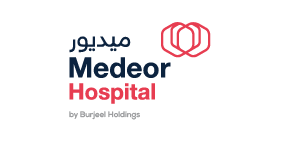Health experts in the United Arab Emirates are urging the public to exercise caution and to comply with COVID-19 safety protocols during the upcoming Eid al-Adha holiday, amid rising cases across the country. Last year the country’s health body recorded an increasing number of infections after Eid celebrations and this year have urged people across the UAE to take PCR tests before the festivities to limit the spread of new cases.
The National Emergency Crisis and Disaster Management Authority (NCEMA) said during a special briefing on Monday that the public should ensure they are tested no more than 72 hours before taking part in gatherings to protect the health of family and friends. Across the UAE, health experts say the public must listen to authorities to limit the spread of COVID-19
Dr Saheer Sainalabdeen, a specialist pulmonologist at Medeor Hospital, Dubai, said residents need to remain committed to safety measures to assist the country-wide recovery from the pandemic. In recent weeks, daily infections have been on the rise, surpassing 1,600 each day since June 23 – a U-turn on figures from earlier this year when new daily infections had dropped to as low as 200.
“The current surge in COVID -19 cases is caused by variants of the omicron virus,” said Dr Sainalabdeen. “Even though the virus is less virulent and hospitalization and death cases are less, it’s highly transmissible, contagious, and can cause serious health complications.”
“If we don’t maintain the precautions put forward by health authorities, a spike in cases can occur after any celebrations.”
Dr Sainalabdeen said people should continue to practice safe distancing, avoid crowded or poorly ventilated area, frequent hand washing and use of sanitizers and wearing a “mask over the nose and mouth – and not on the neck.”
“Also, avoid handshakes, and other physical gestures, avoid gatherings and family meetups during Eid. If at all, those gatherings shall keep a check on numbers and be limited among those who are fully vaccinated. Pregnant women, children and those belonging to the high-risk group should stay away from these meetings.”
“Have outdoor gatherings rather than indoors and encourage guests to wear masks properly and if the time has come to take your COVID 19 booster shots, take it at the earliest.”
“If any of your family members have flu-like symptoms (fever, cold, and cough), it is advisable not to attend any group celebrations.”
Last week it was announced that the first day of Eid al-Adha will begin on July 9 following the sighting of the crescent moon in Saudi Arabia at the Tamir observatory, the official Saudi Press Agency (SPA) reported, citing the Kingdom’s Supreme Court. The five-day Muslim holiday of sacrifice falls during the lunar month of Dhu Al-Hijjah, which begins on June 30, marking the month when the Hajj pilgrimage takes place.
Hajj will start on July 6 through July 10, with Arafat Day falling on July 8, according to the Supreme Court’s statement. In the UAE, public and private sector workers will be on holiday from Friday, July 8 until Monday, July 11.
Read Full Story: alarabiya



